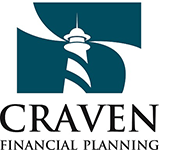Investment Fees Tax-Deductible


Are Your Investment Fees Tax-Deductible? A Guide to Non-Registered Accounts and Tax Efficiency in Canada
By Bill Craven
Introduction: Why This Matters to Canadian Investors
If you’re investing through a non-registered account, chances are you’ve already asked yourself: “Can I deduct my advisor’s fees?” It’s a smart question — and the answer can directly impact your bottom line at tax time.
Unlike registered plans like RRSPs or TFSAs, non-registered accounts are fully taxable — which means every interest payment, dividend, and capital gain could create a tax liability. But with the right knowledge and planning, there are legitimate ways to offset some of that tax, starting with the potential deductibility of certain advisor fees.
In this article, we’ll walk you through:
- What non-registered accounts are
- Why tax efficiency matters more than ever
- Which advisor fees are deductible (and which aren’t)
- Real examples of how tax optimization can save you money
- How working with a qualified financial planner can make all the difference
Let’s start with the basics.
What Is a Non-Registered Investment Account?
A non-registered investment account is exactly what it sounds like — an investment account that isn’t registered with the Canadian government for special tax treatment. This means it doesn’t have contribution limits, withdrawal restrictions, or tax shelters like RRSPs or TFSAs.
You can hold a wide variety of investments inside a non-registered account, including:
- ✔️ Stocks
- ✔️ Bonds
- ✔️ Mutual funds
- ✔️ ETFs
- ✔️ GICs and other fixed-income products
Key Characteristics:
- Taxable: You’ll be taxed annually on any income the account generates — including interest, dividends, and capital gains.
- No limits: There are no caps on how much you can contribute or withdraw.
- Flexible: Ideal for long-term growth, surplus income, or inheritance funds not needed immediately.
This type of account is often used by:
- High-income earners who’ve maxed out their RRSPs and TFSAs
- Business owners holding surplus funds
- Retirees drawing income from taxable investments
- Anyone saving or investing outside of registered plans
But here’s the catch: because of their taxable nature, non-registered accounts require careful tax planning to avoid unnecessary tax burdens — and that’s where understanding tax efficiency and advisor fee deductibility comes into play.
Understanding Tax Efficiency in Non-Registered Accounts
When it comes to non-registered investments, the type of income you earn — and how it’s taxed — makes a big difference. This is the heart of what financial planners call tax efficiency: the art of minimizing the taxes you pay on your investment returns.
Here’s how different types of investment income are taxed in Canada:
Income Type | Tax Treatment (2025) | Example Sources |
Interest Income | Fully taxable at your marginal rate | GICs, bonds, high-interest savings |
Dividend Income | Eligible for dividend tax credit | Canadian stocks & dividend-paying funds |
Capital Gains | 50% taxable | Sale of appreciated stocks or ETFs |
Let’s break this down:
Interest Income:
- Taxed 100% at your full marginal rate
- If you’re in a higher tax bracket, this can eat up a significant chunk of your return
- Least tax-efficient
Dividend Income:
- Comes with a federal and provincial dividend tax credit
- More tax-efficient than interest
- But only applies to eligible Canadian dividends
Capital Gains:
- You’re only taxed on 50% of the gain
- If you hold an investment for several years and then sell it for a profit, it’s often the most tax-efficient way to grow wealth
Why Tax Efficiency Matters in a Non-Registered Account
In a TFSA, everything is tax-free. In an RRSP, you defer taxes until retirement. But in a non-registered account, you’re taxed every year — which means tax drag can quietly erode your returns over time.
Imagine this:
- Two investors earn the same 5% return
- One earns it through interest, the other through capital gains
- The capital gains investor may keep more after-tax — potentially thousands more over time
This is where tax-efficient investing becomes critical, especially if you’re:
- In a high-income bracket
- Building a retirement income stream
- Managing family wealth or a corporate surplus
But there’s another layer to this: your advisor’s fee structure. And whether those fees are tax-deductible depends on how your investments are managed — something most Canadians aren’t aware of.
Deductibility of Advisor Fees – What the CRA Allows (and What It Doesn’t)
Here’s the truth: not all advisor fees are created equal — at least not in the eyes of the Canada Revenue Agency (CRA).
If you have a non-registered investment account and you’re paying ongoing fees for professional investment advice, some of those fees may be tax-deductible — but only under specific conditions.
What You Can Deduct
According to the CRA, the following fees are generally deductible:
- Investment counsel fees paid specifically for advice on buying and selling securities
- Fees paid directly from a non-registered account, not embedded in a product
- Fees paid to a fee-only or fee-based advisor for managing investments
Example:
You pay a 1% annual fee directly to your financial planner for managing your mutual fund and ETF portfolio in a non-registered account. That 1% may be deductible on your tax return — potentially saving you hundreds or even thousands annually, depending on your income bracket.
What You Cannot Deduct
Here’s where many investors get tripped up. The following are not deductible:
- Commission-based fees (like when you buy stocks or mutual funds with a built-in trailer fee)
- Embedded fees inside mutual funds (MERs)
- Fees related to financial planning, tax preparation, or retirement planning
- Fees for managing RRSPs, TFSAs, RESPs, or other registered accounts
- One-time setup or consultation fees not tied to security trades
CRA Reference:
For those who like to verify, see CRA’s official guidance under IT-238R2 – Fees Deductible for Investment Advice
Why This Matters to You
If you’re working with an advisor or planner, and they’re managing your non-registered investments — it’s worth asking:
- Are my fees being charged directly or embedded in products?
- Am I claiming those eligible fees on Line 22100 of my return?
- Can I restructure my account to make fees more transparent and tax-friendly?
In the next section, we’ll explore real-world examples of how this works — and just how much tax you could be saving with a simple adjustment.
Real-Life Examples – How Advisor Fee Deductibility Impacts Your Bottom Line
To truly understand the power of tax-efficient planning in non-registered accounts, let’s look at two simplified case studies that illustrate just how much difference advisor fee deductibility can make.
Case Study 1: Retired Investor with a Managed Portfolio
Client Profile:
- Age 68, retired
- Lives in Chatham, Ontario
- $400,000 in a non-registered managed portfolio
- Pays 1% annual advisor fee billed directly from the account
- In the 43% marginal tax bracket
Scenario:
- Annual advisor fee = $4,000 (1% of $400,000)
- Because the fee is for investment counsel and is billed directly, it’s tax-deductible under Line 22100
Tax Savings:
- $4,000 × 43% = $1,720 tax reduction annually
Over 10 years, that’s $17,200 in tax savings — just for structuring the account correctly.
Case Study 2: High-Income Professional with Mutual Funds
Client Profile:
- Age 45, incorporated professional
- Lives in London, Ontario
- Invests $250,000 in mutual funds through a bank
- Fees are embedded in the funds’ MERs (approx. 2.25%)
- Pays no direct advisory fee
- In the 48% marginal tax bracket
Scenario:
- Despite paying ~$5,625/year in embedded fees, none are tax-deductible
- The fees reduce investment returns, but provide no tax benefit
Missed Opportunity:
- If restructured into a fee-based portfolio with transparent billing:
- Fee = 1% = $2,500/year
- Deductible amount = $2,500 × 48% = $1,200/year in potential tax savings
Takeaway: This professional is paying more in fees and getting less tax benefit, simply due to how the account is structured.
What These Examples Show
- Deductibility isn’t automatic — it depends entirely on how fees are charged
- Investors working with fee-based advisors in non-registered accounts may unlock legitimate tax savings
- Even small tweaks can create meaningful long-term benefits
In the final section, we’ll explain how working with a Certified Financial Planner — like Bill Craven — can help you restructure your investments for greater tax efficiency and peace of mind.
How a Financial Planner Can Help You Save (and Stay Compliant)
The truth is, many Canadians are unknowingly leaving money on the table — paying investment fees without realizing they could be deductible, or missing out on smarter ways to reduce taxes in their non-registered accounts.
That’s where an experienced financial planner makes a meaningful difference.
Personalized Planning That Goes Beyond Products
A Certified Financial Planner (CFP) doesn’t just recommend investments — they look at your entire financial picture:
- Your income and tax bracket
- Your investment structure
- Your retirement timeline
- How your accounts are taxed — and how they could be taxed more efficiently
They ask questions like:
- Are your fees eligible for deduction under CRA rules?
- Should your investment strategy prioritize capital gains over interest income?
- Are there ways to consolidate or restructure your accounts to unlock tax savings?
Avoid Costly Mistakes (and Common Misunderstandings)
Without professional advice, it’s easy to:
- Hold high-interest products in taxable accounts (creating unnecessary taxes)
- Use commission-based accounts and lose deductibility
- Miss out on claiming eligible fees on your tax return
- Assume your bank’s investment plan is “good enough” — when it’s really just expensive
A trusted advisor helps you avoid these traps legally and ethically, while keeping you fully aligned with CRA expectations.

Why Work with Bill Craven?
Bill Craven, CFP®, EPC®, has spent decades helping individuals, families, and small business owners in Ontario maximize tax efficiency, manage risk, and build intergenerational wealth. His transparent, client-first approach means:
- No hidden commissions
- Customized strategies
- Support for T1 filings and CRA compliance
- A focus on after-tax returns, not just performance
Final Thoughts: Small Adjustments, Big Impact
Tax efficiency isn’t about loopholes — it’s about smart, proactive planning. And in a high-tax country like Canada, that planning starts with understanding how your investments are taxed — and how to claim what’s rightfully yours.
Whether you’re just getting started or managing a sizable non-registered portfolio, the next best step is speaking to a professional.
Ready to Keep More of Your Money?
Schedule a free consultation with Bill Craven, CFP®, EPC®,
📞 Call: 519-351-9411
📧 Email: bill@cravenfp.com
Key Takeaways: Tax Efficiency and Deductibility in Non-Registered Accounts
- Not all investment fees are deductible — only direct investment counsel fees for non-registered accounts may qualify under CRA Line 22100.
- Fee-based accounts offer more transparency and potential tax savings compared to commission-based or embedded-fee structures.
- Tax-efficient investing matters more in non-registered accounts, where interest is fully taxable, dividends are partially taxed, and capital gains are the most tax-friendly.
- Restructuring your investment accounts can lead to thousands in long-term tax savings, especially for retirees, professionals, and business owners.
- A Certified Financial Planner can help align your investment strategy with your tax profile, improving after-tax returns while staying fully CRA-compliant.
- Many Canadians are unaware that investment fees may be deductible — a conversation with a knowledgeable advisor can uncover missed opportunities.
FAQ Section: Non-Registered Accounts & Tax Deductibility in Canada
Disclaimer: This information is for general purposes only and is not intended as tax advice. For more information, please contact your accounting professional.
1. Are financial advisor fees tax-deductible in Canada?
2. Can I deduct investment fees from my RRSP or TFSA?
3. What types of investment fees are not deductible?
4. How do I know if my advisor fees are tax-deductible?
5. Where do I claim advisor fees on my Canadian tax return?
6. What is the most tax-efficient type of investment income in Canada?
7. Who should use a non-registered investment account?
8. Can a financial planner help reduce taxes in my investment account?
Further Reading
- Long-Term Care Insurance by Craven Financial Planning
Explore how long-term care insurance can safeguard your financial future by covering extended care services due to aging, disability, or chronic illness. This article also discusses the potential tax deductibility of long-term care insurance premiums in Canada
https://cravenfp.com/long-term-care-insurance-by-craven-financial/
- Line 22100 – Carrying Charges, Interest Expenses, and Other Expenses
The CRA provides detailed information on claiming carrying charges and interest expenses paid to earn investment income, including the deductibility criteria for investment counsel fees.
- ARCHIVED – Fees Paid to Investment Counsel
This archived CRA bulletin discusses the conditions under which fees paid for investment counsel are deductible, providing historical context and guidelines.
- All Deductions, Credits, and Expenses – Personal Income Tax
A comprehensive guide by the CRA outlining various deductions, credits, and expenses that individuals can claim to reduce taxable income.
Mutual funds, approved exempt market products and/or exchange traded funds are offered through Investia Financial Services Inc.
The comments contained herein are a general discussion of certain issues intended as general information only and should not be relied upon as tax or legal advice. Please obtain independent professional advice, in the context of your particular circumstances. This article was prepared by Bill Craven who is an Investment Funds Advisor at Craven Financial Planning a registered trade name with Investia Financial Services Inc., and does not necessarily reflect the opinion of Investia Financial Services Inc. The information contained in this presentation comes from sources we believe reliable, but we cannot guarantee its accuracy or reliability.

ETF Funds vs ETFs in Canada
ETF Funds vs ETFs in Canada: What’s the Real Difference—and Why It Matters to Your Money By Bill Craven B.A.,CFP,EPC “It’s easy to assume ETF Funds and ETFs are interchangeable. After all, they share the same acronym. But dig just a little deeper, and the differences can have a major

Disability Insurance for Corporation Owners in Ontario
by Bill Craven Protecting Your Business in a Crisis: Disability Buy-Sell & Wage Loss Plans for Ontario Corporation Owners Tailored insights for incorporated professionals, medical practices, and business partnerships. What would happen to your business if you suddenly couldn’t work? For many incorporated professionals, it’s a question they’ve never
- Canadian tax deductions
- carrying charges CRA
- CRA Line 22100
- deducting investment expenses
- financial advisor fees tax deductible
- financial planning Canada
- investment fees tax deductible canada
- investment income tax strategies
- investment management fees Canada
- non-registered investment accounts
- registered investment accounts
- RRSP fees deductibility
- tax deductible investment fees
- tax planning for investors
- TFSA fees tax rules
William (Bill) Craven, BA, CFP, EPC, is a seasoned financial expert with over three decades of experience in helping Canadians plan for the future with confidence. As the founder of Craven Financial Planning, Bill has built a reputation for delivering tailored financial planning and insurance strategies that align with each client’s unique goals, tax considerations, and long-term security.
Based in Chatham, Ontario, Bill is a Certified Financial Planner (CFP), Elder Planning Counsellor (EPC), and a Mutual Fund Representative with Investia Financial Services Inc. He provides trusted guidance on RRSPs, TFSAs, retirement income planning, life and disability insurance, estate bonds, and tax-efficient investment solutions.
Recognized for his integrity, personal service, and depth of knowledge, Bill works with individuals, families, and business owners throughout Southwestern Ontario to build financial confidence through personalized, values-based planning.
